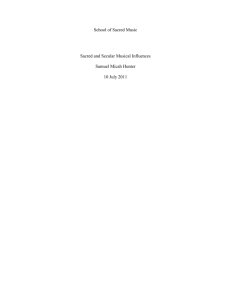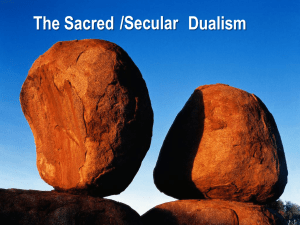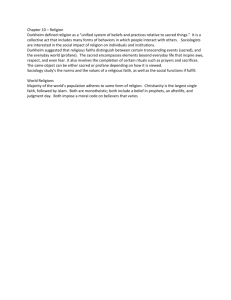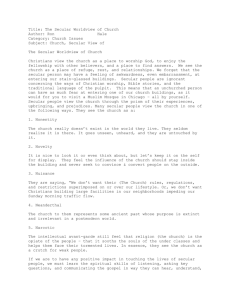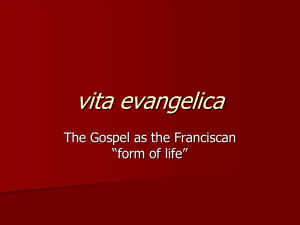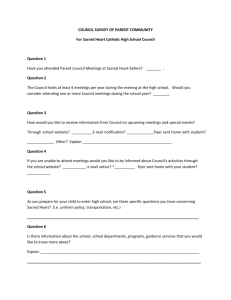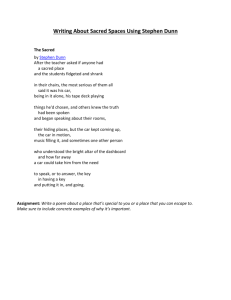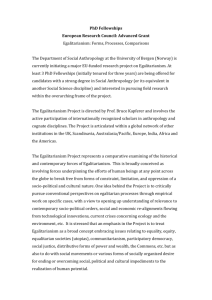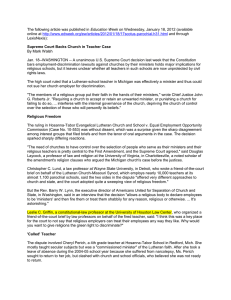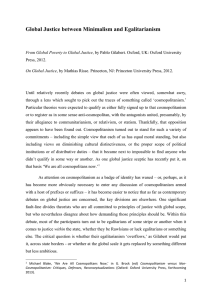12-08 lecture - PowerPoint
advertisement
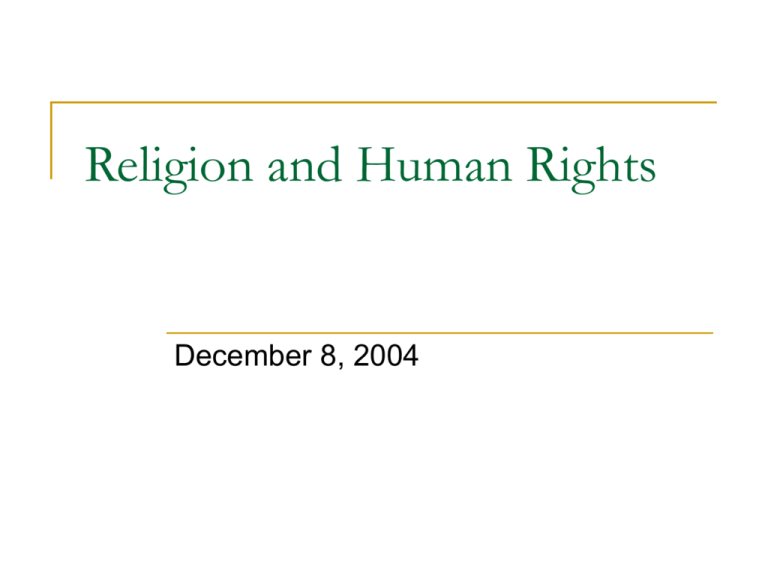
Religion and Human Rights December 8, 2004 Key Issues: Historical What human rights owes to religion Key Issues: Philosophical Duties to mankind versus duties to God Religious ethics versus human rights: the idea of universality Human rights and the idea of the sacred Key Issues: Political Freedom of expression versus respect for religion: the Dutch case Right to proselytize versus respect for religion: the missionary issue Freedom of religion versus republican egalitarianism: the French case Human Rights and Religion: History To 1648 Rights of freemen, rights of nobles versus power of the king Secular rights versus religious courts Natural rights and religious war Rights as a state monopoly Religious toleration and its limits The Age of Revolution The natural right of resistance The rights of man as secular reason The Struggle for Inclusion since 1789 The Poor: property and voting rights Women: gender equality Slaves: racial equality Colonial Peoples: self-determination Religion and the defense of the old order Since 1945 Nazism and the disgrace of nationalism Genocide and the silence of the Church The crisis of the Westphalian state and the return of natural law The Creation of Human Rights Law: 1948-1976 Universal Declaration of Human Rights, 1948 International Covenant on Civil and Political Rights, 1966 International Covenant on Social and Economic Rights, 1966 The Helsinki Final Act and the emergence of a single global rights culture Religious freedom as a human rights issue: China, Iran Conclusion: What Human Rights Owes to Religion Human Rights and Religious Syncretism Human Rights as Secular Reason Human Rights and Religion: Philosophy Duties to Mankind versus Duties to God Religion as a Subordination of Man to God Religion as a Justification of Violence Human Rights and Human Dignity Human Rights and Hubris The Idea of Universality Religion and Moral Outcasts: the Unbeliever, the Sinner, the Infidel, the Heretic Human Rights and the Embrace of the Outcast The Idea of the Sacred The idea of the sacred and the ‘right to have rights’ In place of the sacred: philosophical anthropology The anthropology of agency The anthropology of empathy Human Rights and Religion: Politics Current Conflicts Between Religion and Human Rights Freedom of Expression versus Tolerance: the Dutch Case Is freedom of expression conditional upon respect? If freedom of expression is not conditional upon respect, how is civil peace possible? The Right to Proselytize: the Case of Missionaries Freedom of religion implies the right to spread the Word of God Spreading the Word of God may insult other religions When should the right to proselytize cede to the obligation to respect other faiths? Freedom of Religion versus Republican Egalitarianism: the French Case Freedom of religion implies the right to display of religious allegiance in public French schools ban ostensible religious signs in public schools Should republican egalitarianism trump private religious freedom? Conclusions The struggle for rights inclusion is not over: religion has joined race and class as sources of exclusion Rights inclusion is not enough: juridical equality for faiths, races and classes does not deliver real equality Tolerance is not a pact of mutual indifference Tolerance is active adjudication of difference The supremacy of secular law faces a challenge from Islam and Christianity Majority secular cultures must reconcile tolerance with unity and indivisibility of citizenship.


